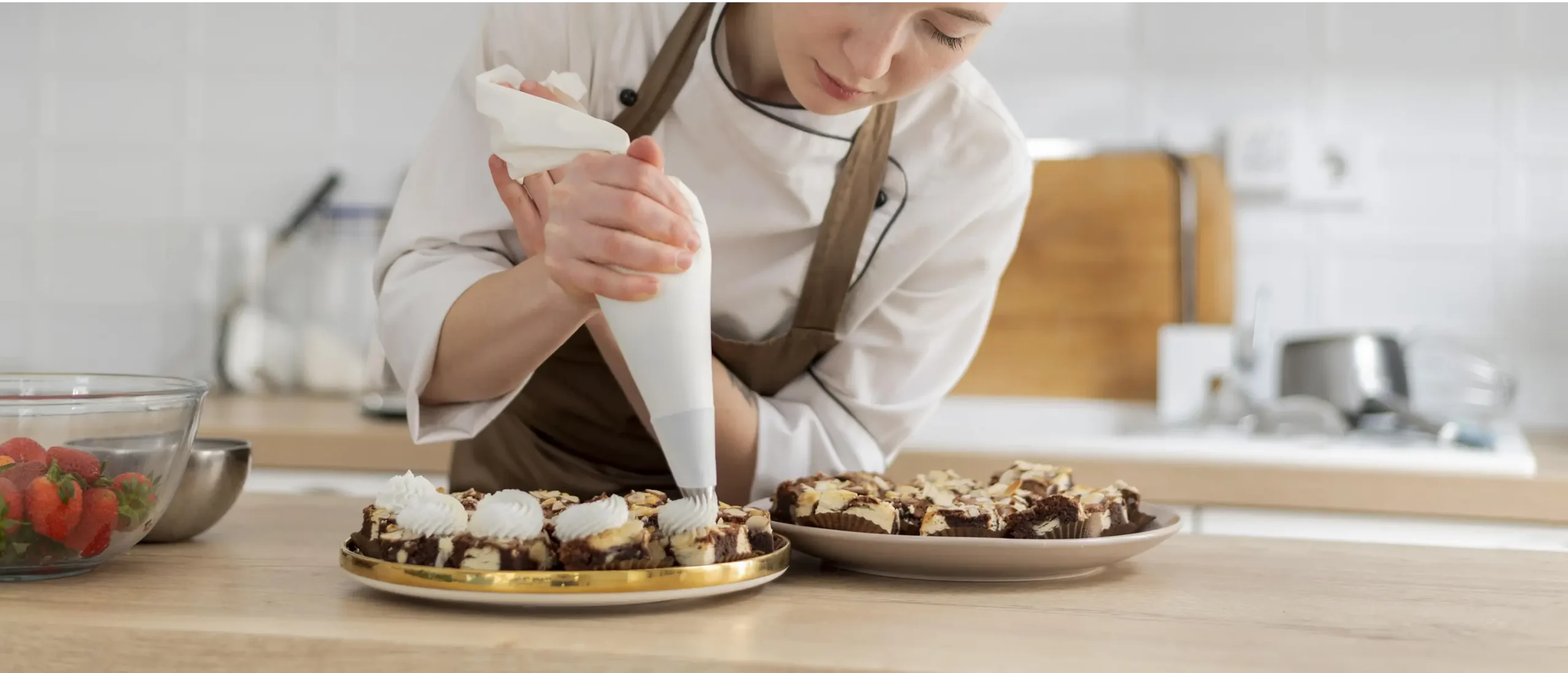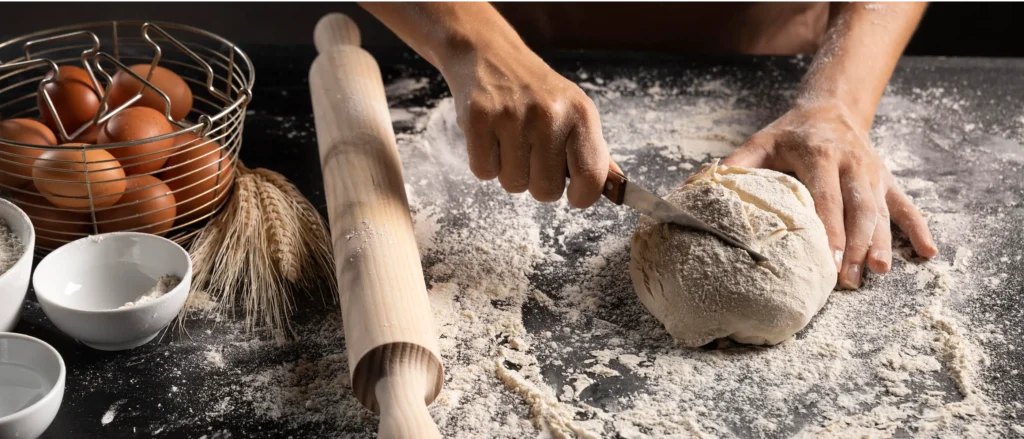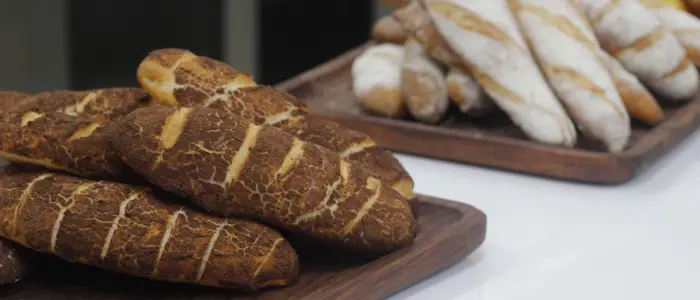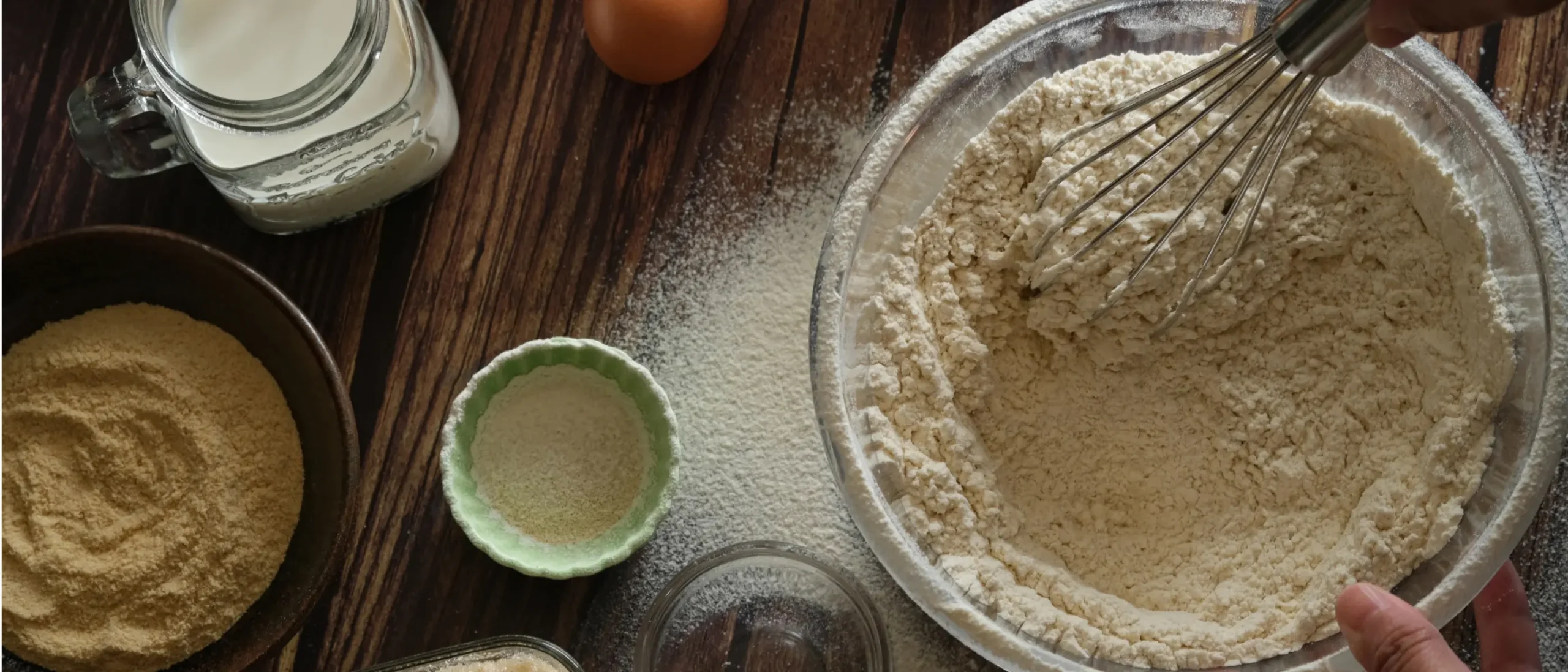Taking a professional baking course is more than learning how to mix flour and sugar; it is a passport into learning the craft of precision, patience, and creativity. Whether you are joining a course on bakery chef or a diploma in bakery, the programmes offer the necessary skills that an aspiring baker would need in order to have a promising career in the culinary arts.
With the ever-growing craze of taking professional baking classes in India, students are seeking options to learn baking in India and convert their hobby into a career. Wondering what you will really learn on these professional baking courses? Here is a breakdown of the skills, nine of them, you will acquire.
1. Ingredient Substitution & Dietary Adaptation
An essential aspect of modern culinary education is learning to modify a recipe to support the needs of a diet. Whether it is gluten-free substitutes or vegan options, students find the methods of experimentation without losing a deeper sense of flavour and texture.
- Study the chemistry of baking replacements.
- Learn about intolerances and allergies.
- Use local or seasonal products and adjust the recipes.
This versatility is crucial in contemporary bakeries where tastes differ. From gluten-free preferences to vegan and keto trends, today’s customers expect options that suit their lifestyles. Being able to adapt recipes without compromising on taste or texture not only improves customer satisfaction but also gives bakers a competitive edge in a dynamic food market.
2. Time Management & Batch Planning

Owning a bakery or kitchen is time-sensitive. The courses in pastry chef educate students on:
- Production scheduling.
- Temperature regulation of bake cycles.
- Efficient preparation of large batches.
During a diploma in baking or whenever undertaking courses in baking as a pastry chef, time is vital to success. Precision in baking timelines, from proofing dough to final decoration, directly impacts the final product. Learning to manage your time also builds professional discipline, enabling you to meet deadlines, handle multiple orders, and reduce kitchen stress.
3. Hygiene, Food Safety, and Kitchen Prep
According to the World Health Organization, around 600 million people get sick every year from eating unsafe or contaminated food. Training in food safety is not just useful; it’s essential.
Great cakes are produced in clean kitchens!
You will be trained:
- HACCP safety standards.
- Good sanitation methods.
- Secure storage and handling of Ingredients.
Food safety is the backbone of any baking outfit and any part of the baking skills courses. You can learn more about this by taking up the excellence diploma program from Whitecaps.
4. Recipe Scaling & Cost Control
Every diploma course in baking deals with scaling up and down of recipes to various batch quantities and with managing food costs. You’ll understand:
- Accuracy of ingredients.
- Yield calculation.
- Less food wastage.
This comes in handy when you are starting a bakery of your own or when handling orders in large quantities. There is also an aspect of learning pricing tactics, negotiating with vendors, and budgeting for the purchase of ingredients. Understanding how to scale recipes and balance costs keeps the quality and profitability consistent, and that is the key to success, whether you are starting a new business or working on an existing one.
5. Communication
Baking is not all about the technique; professional baking necessarily involves communication in cases when you are part of a team. A professional bakery chef course usually has:
- The rules of the kitchen.
- Contact with clients (customised cake).
- Arranging the chefs and vendors.
6. Using Baking Tech & Tools
Contemporary bakeries are technologically dependent. With courses like the Cake Engineering Program, students become well-versed in using advanced machinery and precision tools.
- Bake and chill machinery.
- Temperature control instruments.
- Online recipe-keeping applications.
For those interested in baking without eggs, the Eggless Baking Programme teaches how to create soft, flavourful bakes with perfect texture, without compromising on taste.
Did you know? A report from the Assocom Institute of Bakery Technology and Management, based in India, found that 25% of bakeries now use convection ovens, 20% use automated mixing systems, and 18% use IoT-enabled ovens, showcasing the strong move toward technological advancement in the industry.
7. Global & Cultural Baking Techniques
Have you ever wanted to know the difference between Pierre Herme and mithai?
The diploma course in baking provides:
- International recipe exposure.
- Practice with world styles.
- Understanding dessert culture and pastries.
This is critical information to students who wish to learn to bake in India on a global note. Understanding international standards in cost management and recipe portioning prepares students for opportunities beyond local kitchens, whether in luxury hotels, cruise liners, or overseas internships. It builds confidence and opens doors to a world of baking possibilities.
8. Food Styling & Photography Basics
In the Instagram world, presentation is important! Modern culinary education recognises that technical skills alone aren’t enough; today’s bakers must also be visual storytellers who can showcase their creations effectively across digital platforms.
- Plating techniques.
- Digital portfolio food photography.
- Making sweet foods pretty.
These are just some of the valuable skills you’ll develop through the Professional in Baking and Pastry course, designed to help aspiring bakers and pastry chefs stand out in the kitchen
9. Product Packaging & Presentation
Finally, branding involves packaging. Students acquire skills from the professional cake-making course in:
- Safely pack products to deliver them.
- Select sustainable materials.
- Develop a brand with package beauty.
Conclusion
Whether you want to pursue a bakery chef course or a complete diploma in bakery & confectionery, you are ready to prepare with creativity, handle the kitchen in an efficient way, and produce excellent products with a sense of authority.
At Whitecaps International, learners can access the best tutors, practical laboratories, and industry exposure to enhance their careers in the baking industry. If you’re searching for professional baking classes in Bangalore, this is the ideal place to begin. Contact us now and start your baking immediately.
FAQs
Q1. Can I enrol in a professional baking course with no experience?
Yes, most professional baking courses are beginner-friendly and start with foundational skills.
Q2. Is a diploma in bakery worth it in India?
Absolutely. The bakery industry in India is growing fast, and trained professionals are in demand.
Q3. What’s the difference between a bakery chef course and a diploma course?
A bakery chef course may be shorter and focused, while a diploma is more detailed and includes theory, practical, and internships.
Q4. Do these courses cover pastry and confectionery too?
Yes. Many programmes combine courses in pastry chef and baking skills courses for all-round training.
Q5. Where can I find a good baking course in India?
Check out Whitecaps International for professional and certified baking courses with expert guidance.




